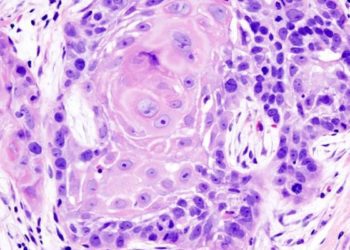Low-carbohydrate, high-fat diet improves glycemic control in type 2 diabetic patients
1. A low-carbohydrate high-fat (LCHF) diet improved glycemic and weight control in patients with type two diabetes mellitus (T2DM) compared to a high-carbohydrate low-fat (HCLF) diet.
2. Both the LCHF and HCLF diets resulted in increased high-density lipoprotein cholesterol (HDL), while only the LCHF diet resulted in higher low-density lipoprotein cholesterol (LDL).
Evidence Rating Level: 1 (Excellent)
Study Rundown: Weight loss through low-calorie diets improves glycemic control and nonalcoholic fatty liver disease (NAFLD) in patients with T2DM. However, low-calorie diets have poor long-term adherence. Calorie-unrestricted diets with variations in macronutrient composition may improve glycemic control without weight loss. There is a paucity of evidence on the effectiveness of calorie-unrestricted low-carbohydrate diets on glycemic control. In this open-label randomized control trial, the effectiveness and safety of LCHF and HCLF diets were compared in adult patients with T2DM. The effect of these diets on NAFLD was also evaluated in the same cohort of patients. The intervention was administered for six months, followed by a three-month monitoring period. At inclusion, hemoglobin A1c (HbA1c) was lower in the LCHF group than in the HCLF group. While both groups improved in HbA1c at three and six months, improvement was significantly more in the LCHF group than the HCLF group. LDL and apolipoprotein B increased and decreased, respectively, in both LCHF and HCLF groups. Triglycerides decreased and HDL increased in both groups, with the greatest improvements in the LCHF group. The LCHF group had greater improvements in weight, waist circumference, and insulin resistance. There were no significant differences in NAFLD outcomes. More patients in the LCHF group reported hypoglycemic episodes, constipation, and diarrhea. Multiple limitations must be considered. The study design was open-label, which may have biased patient and interviewer behavior. Weight loss was also more significant in the LCHF group, meaning that the diet benefits may be mediated by weight loss. Further, diet adherence could not be accurately verified, as the study relied on self-reported intake.
Click to read the study in AIM
In-Depth [randomized controlled trial]: The aim of this randomized control trial was to compare glycemic control in T2DM patients on LCHF versus HCLF diets. Patients over age 18 with T2DM (n=165) were randomized in a 2:1 ratio to either LCHF (n=110) or HCLF (n=55) diet. Patients with NAFLD (n=141) were specifically included in an analysis of intervention efficacy in improving NAFLD. The LCHF diet consisted of a daily macronutrient intake of a maximum of 20% carbohydrates, 50% to 60% fats, and 25% to 30% proteins. The HCLF diet consisted of 50% to 60% carbohydrates, 20% to 30% fats, and 20 to 25% proteins. The intervention lasted six months, and patients were followed for an additional three months. Baseline HbA1c was lower in the LCHF group. While HbA1c improved in both groups at three and six months, it improved more in the LCHF group with a mean difference in change of -6.1 mmol/mol (95% Confidence Interval [CI], -9.2 to -3.0 mmol/mol) after six months. LDL and apolipoprotein B significantly increased in the LCHF group and decreased in the HCLF group (mean difference in change, 0.37 mmol/L; 95% CI, 0.17 to 0.58 mmol/L) for LDL and 0.08 g/L (95%CI, 0.03 to 0.014 g/L). Both groups decreased in levels of triglycerides and increased in HDL. Weight, waist circumference, and insulin resistance had greater improvements in the LCHF group (p<0.05). These changes were not sustained at nine months. There were no significant differences in NAFLD outcomes as measured by NAFLD activity score. Adverse events occurred in more participants in the LCHF group (p<0.05). These included hypoglycemic episodes, constipation, and diarrhea, In summary, this study suggests that a six-month calorie unrestricted LCHF diet is superior to the HCLF diet for glycemic control and weight loss in T2DM.
Image: PD
©2023 2 Minute Medicine, Inc. All rights reserved. No works may be reproduced without expressed written consent from 2 Minute Medicine, Inc. Inquire about licensing here. No article should be construed as medical advice and is not intended as such by the authors or by 2 Minute Medicine, Inc.







